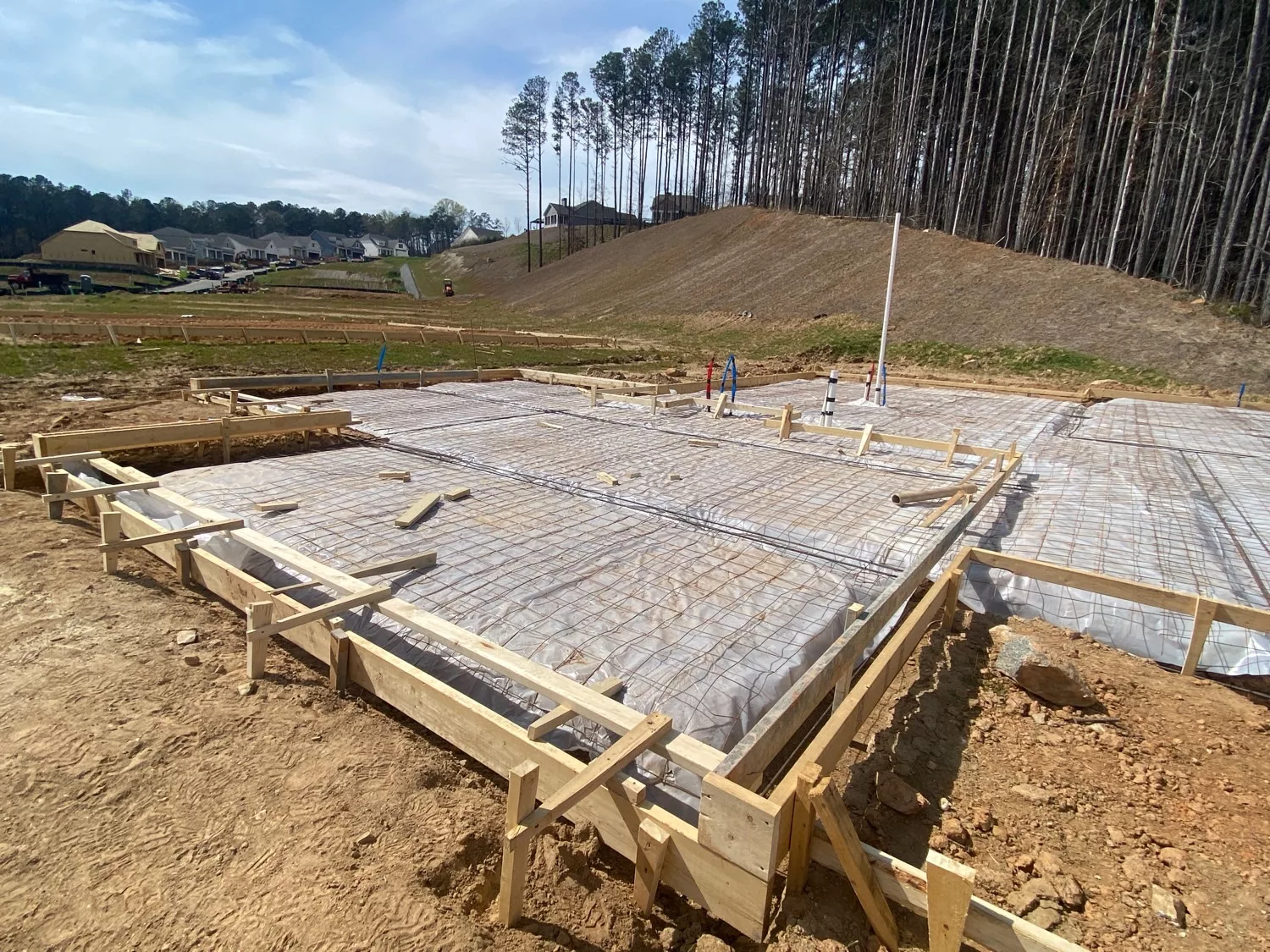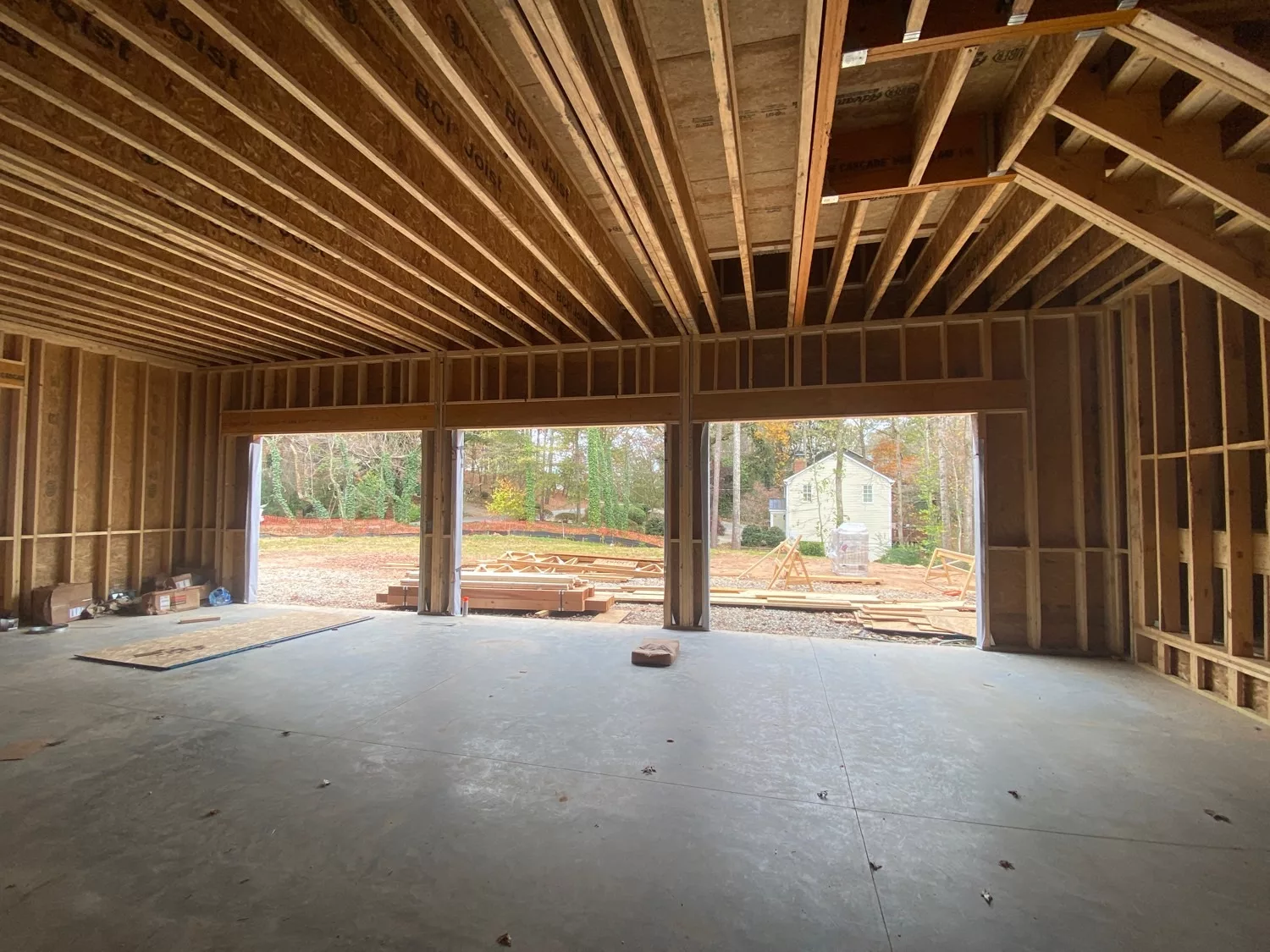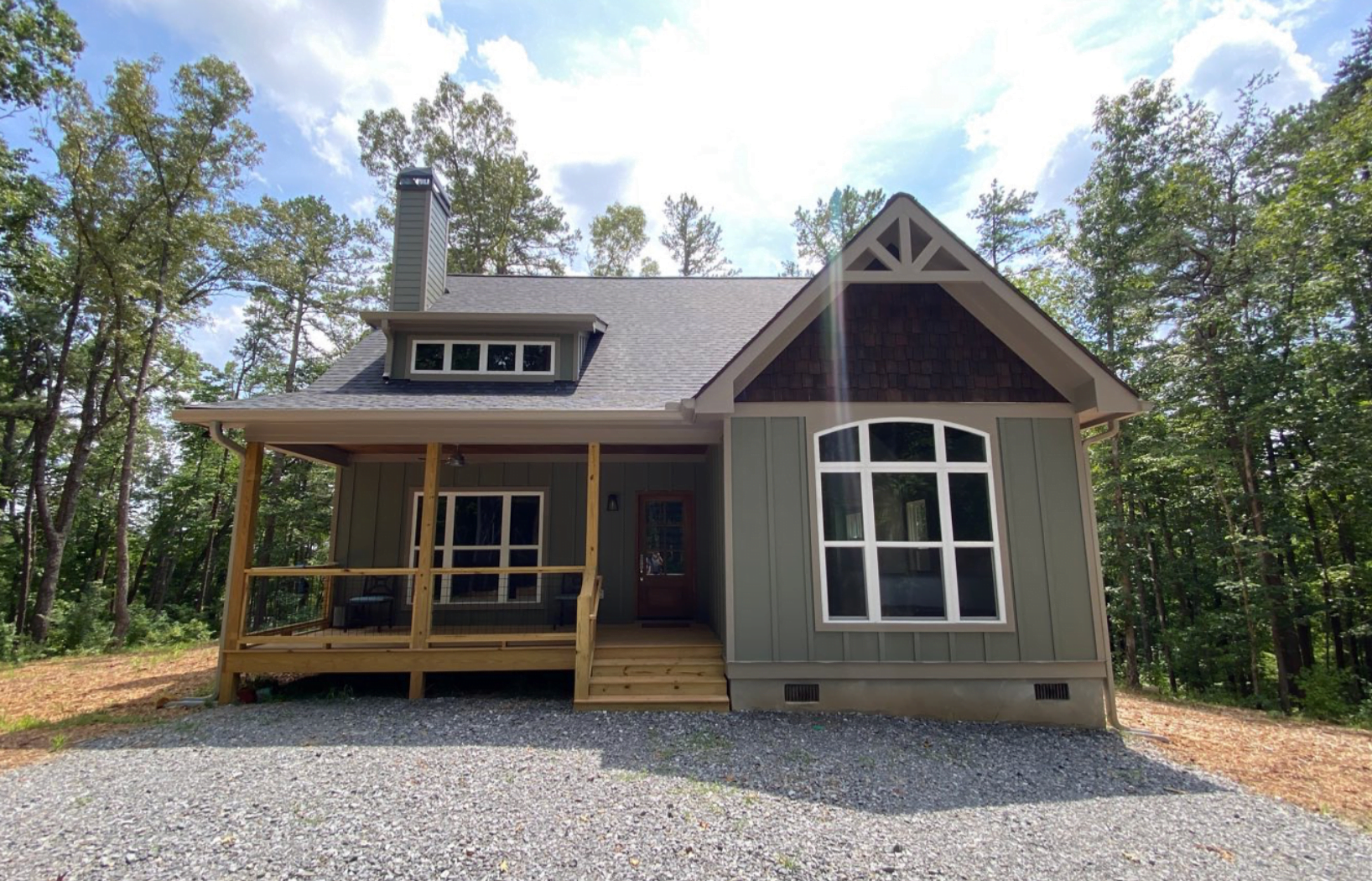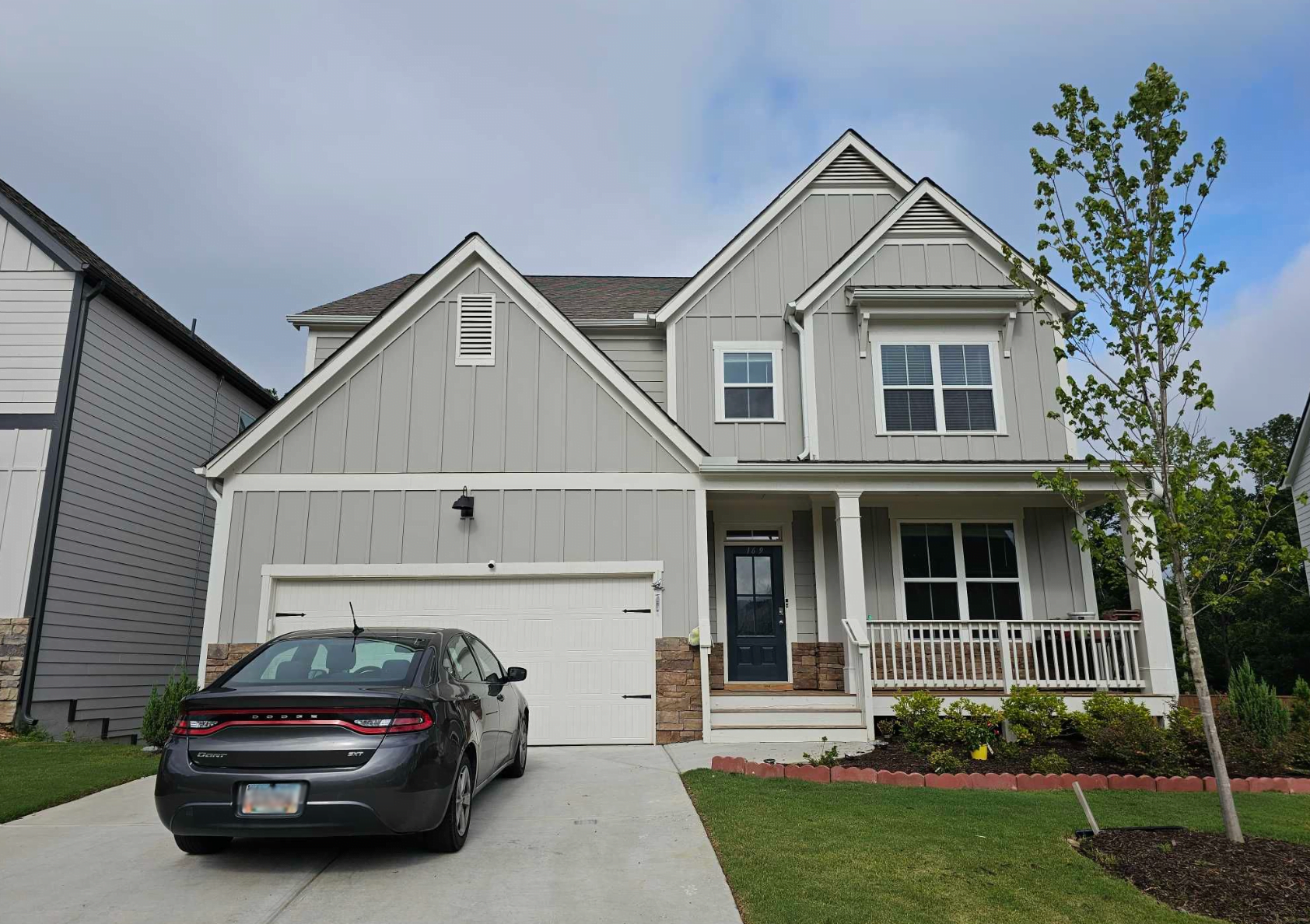Guide to NEW CONSTRUCTION HOME INSPECTIONS
Click here to download a 1-page hand out of this guide.
This guide breaks down each of the different types of new construction inspections, what they involve, and when they take place. However, some people may ask, “Why would anyone hire an inspector to look at a new construction home? Doesn’t the county do that?” While the local municipality will perform inspections as a house is built, they will not inspect the entire house. For example, municipal inspectors are not allowed on ladders and will not inspect roofs. Additionally, municipal inspectors may have dozens of inspections in a single day, leaving them very little time at each house. Hiring a private inspector can provide a comprehensive, detailed inspection, helping to ensure your house is built correctly. So, what types of inspections should you get? Here is a breakdown of the four common inspections that are performed by private inspectors on new construction homes:

Pre-pour inspection is performed prior to concrete being poured.
Pre-Pour Foundation Inspection
Timeline: Takes place prior to pouring the concrete for the foundation and slab.
Overview: This inspection involves assessing the site preparation, forms for the concrete, depth of the footings, the rebar used for reinforcement of concrete, and plastic sheeting used to prevent moisture from seeping up through the slab. This inspection can help ensure that your footings and slab will be thick enough to meet code requirements and properly support loads. Average Cost: $350

Pre-drywall inspections take place before drywall and insulation are installed.
Pre-Drywall Inspection
Timeline: Takes place after framing is completed, utilities are roughed in, and windows are installed. This inspection should take place prior to insulation or drywall being installed.
Overview: This inspections reviews all of the framing for the roof, ceilings, walls, floors, and stairways to ensure it is undamaged and code compliant. Roughed in utilities, including electrical wiring, plumbing lines, and ductwork are also inspected prior to being covered with drywall and insulation. Additionally, our pre-drywall inspections include checking for compliance with the state mandated energy codes that require air-sealing and draft stopping to make the house energy efficient. Average Cost: $425-$500

Final inspection is performed when house is near completion.
Final Inspection
Timeline: Takes place when house is near completion, typically a few weeks out from closing.
Overview: The final inspection covers siding, flashing, roof covering, decks/porches, attic insulation, general interior, all appliances, plumbing, electrical, and HVAC systems. The goal of this inspection is not to identify small cosmetic items but rather to ensure that all systems are code-compliant and operating as intended. Inspection of the roof covering is especially important at this stage. Average Cost: $450-525

11 month warranty inspection is typically done after house has been lived in for 10 or 11 months.
11-Month Warranty Inspection
Timeline: This inspection takes place prior to the end of the builder’s 1-year warranty, typically after homeowner has been living in the house for 10 or 11 months.
Overview: After living in the house for close to a year, many homeowners have questions and concerns about a variety of items in the home. Cracks may have developed in the drywall or paint may be peeling on siding or trim. There are often concerns over whether previous issues were properly fixed by the builder. The goal of this inspection is to identify items that the builder will need to correct prior to the homeowner signing off on the 1-year warranty. Average Cost: $400-475
One final tip – if you hire a private inspector for a new construction inspection, be sure they are “ICC Code Certified” (this means they have passed tests on the building codes). Many inspectors who are not code-certified will offer to perform new construction inspections, but they are not qualified to perform these types of inspections.
Have additional questions or need to book a new construction inspection?
Call or text us anytime: 770-765-6869
Click here to download a 1-page hand out of this guide.

